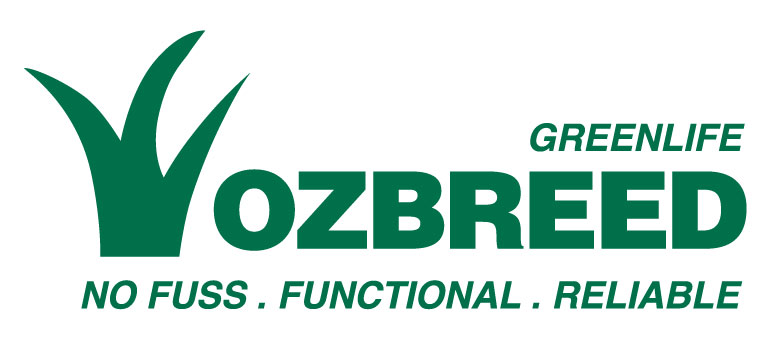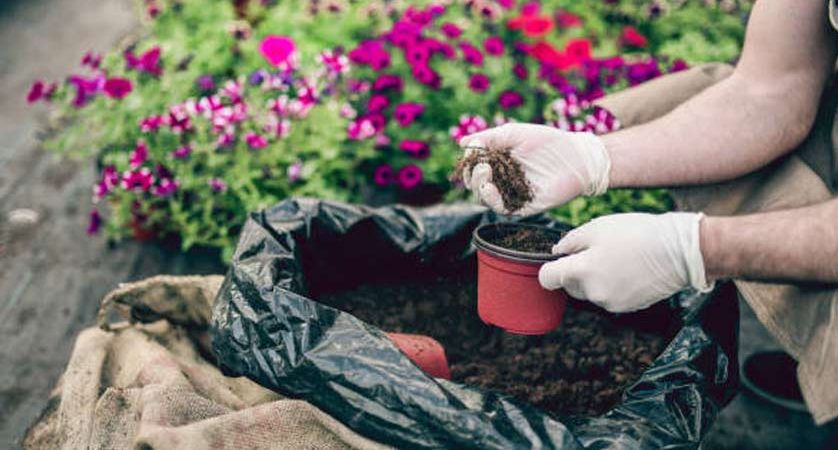Most gardeners are familiar with the need to fertilise but significant confusion exists with regard to which product to use and when.
The requirement for fertiliser will vary with your soil type and condition, and with the type of plants being grown. In general plants which are being pruned (hedges or lawns) or harvested (vegetables or fruit) often, or which are fast growing and short lived (annuals) will require more fertilising than trees and shrubs.
Over use of fertilisers can be very damaging to your soil, can burn or even kill your plants and can be detrimental to the environment, so it is worthwhile to take care in choosing a suitable fertiliser and applying it according to the specified dose rates to reduce these risks.
A fertiliser provides the major nutrients that a plant requires for growth. The quantities of these nutrients is always given on the product packaging to assist you to decide on the most appropriate fertiliser for your situation. The major nutrients are often written as numbers on the front of the pack but the detailed nutrient analysis will be recorded on the back. The numbers on the front are known as the N:P:K ratio, meaning N for nitrogen, P for phosphorus and K for potassium. Some will also have a forth number which is S for sulphur.
Nitrogen is the major element required for growth of green leaves. It is highly soluble in soil and for this reason requires replenishing by using fertilisers. Fertilisers which are high in nitrogen (N value over 10 %) tend to be most suited to plants which require additional leaf growth. Very high N (over 15%) can cause fast leaf growth at the expense of flowers and fruit. This may be highly beneficial for hedges, lawns and leafy plants but if used too often will cause an imbalance and result in weak growth that is highly susceptible to pests and diseases. High nitrogen fertilisers are best used during the growing season when plenty of water is available. Urea nitrogen and ammonium sulphate are forms of nitrogen which contain no other plant nutrients and are useful when nitrogen is the only nutrient required. They should be used with care as they are a concentrated form of nitrogen and can cause plant burning.
Phosphorus is required for healthy plant root growth and flower formation. It is not very soluble and not readily washed out of soils so only needs to be replenished in small doses. Large amounts of phosphorus are problematic to some of our native plants, in particular the grevilleas, banksias and related genera. Super-phosphate is a form of fertiliser which contains only phosphorous. It can be very beneficial in Australia’s phosphorous depleted soils but care should be taken to avoid its use around waterways where it can cause blue green algae blooms, and it should never be used around native plants.
Potassium is required for creating strong cell walls and increased pest and disease resistance. Potash is widely recommended for increased flower production, however this can be misleading. Potash will increase disease resistance and plant strength which in turn leads to greater flower and fruit production but if phosphorous is limited it will not have any effect on flower production.

In addition to these major nutrients plants also require a series of minor nutrients and trace elements. Minor nutrients include calcium, sulphur, magnesium and iron. Commonly required trace elements include manganese, boron, copper, zinc, molybdenum, selenium, and many others.
While all fertilisers contain nitrogen, phosphorous and potassium in various amounts, they can vary enormously in the minor nutrients and trace elements they contain.
An ideal fertiliser will include a variety of major, minor and trace elements for good plant health. There are very few fertilisers available which include a full range of elements. Amongst the best are the Earthlife Soil conditioners and fertilisers, and those by Troforte. These are available on line or at specialist nurseries. These fertilisers contain not only the major and minor plant nutrients, they also contain a huge range of trace elements and soil microbes.
Amongst the products available at the major retail chains, the Osmocote Organics range and the Neutrog range of fertilisers provide the most complete fertiliser solution. These fertilisers have N:P:K ratios in a range which will provide for steady and healthy growth for most plant types, in addition to a range of minor nutrients and trace elements.
Most brands of fertiliser will offer a range of products recommended for different plant groups. Often there is little difference in the make-up of the fertiliser, but the dose rate may vary according to how much feeding the various plant groups need. A good general fertiliser will be suitable for nearly all garden applications, although if you are growing natives you will do best to choose one with very low phosphorous (less than 1.5).
If you are using a fertiliser without additional trace elements, these may become a limiting growth factor in your garden. There is a range of products available which allow you to add only that trace element you have identified as deficient. This can be very useful provided you know which trace element is required. Both Yates and Manutec offer a combined trace element product which includes 9 of the most commonly required trace elements. This is very easy to use and can be applied annually to prevent deficiencies.
Using a rock mineral product or a fertiliser with a wide range of trace elements will also prevent trace element deficiencies.
In addition to fertilisers and trace elements, seaweed solutions and similar products are often recommended to gardeners. These are considered as plant tonics rather than fertilisers. They contain trace elements as well as microbes and enzymes which aid plant growth in ways not clearly understood. They are particularly good at assisting plants to recover from stress, such as transplant shock, or climate related stress. These plant tonics should not be used instead of fertilisers or trace elements but in addition to fertilisers. When a plant is under stress it should not be fertilised but application of a seaweed solution will be beneficial.
By Kate Wall

